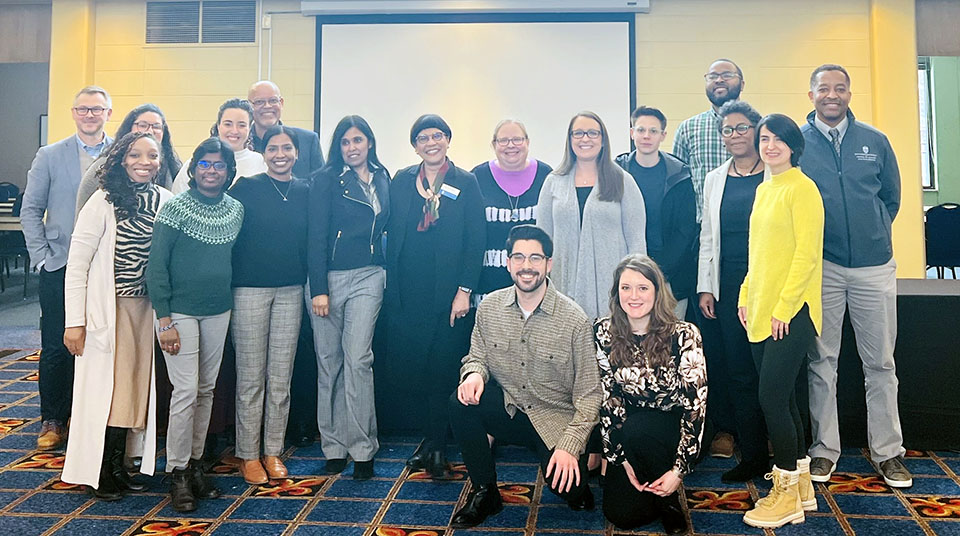DICE’s Faculty Retreat Brings Candid Conversations and Empowerment to Early Career Faculty at SLU
It was an expected snow day on Friday, February 16, in St. Louis yet the Early Career Faculty Mentorship Program – initiated by the Division of Diversity and Innovative Community Engagement (DICE) – went off just as planned.
The retreat started with a morning writing retreat provided by writing coach and faculty mentor, Mark Ruff, Ph.D., professor of history. Ruff shared encouraging words of wisdom and advice.
“Each of us must identify our own barriers or obstacles to writing," Ruff said. "For some, it's procrastination or perfectionism; for others, it's finding the times of day when we are most efficient. We then must figure out solutions. For some of us, it might be learning how to say no to demands on our time that cut into our writing.”
The writing retreat was part “group therapy” about the systemic barriers to writing and part focused time for setting and accomplishing goals, said Katie Heiden-Rootes, Ph.D., organizer of the event and Assistant Vice President for Faculty Equity in DICE.
Provost Michael Lewis, Ph.D., kicked off the afternoon with his insights and personal story as a first-generation college student, then faculty member seeking promotion and tenure.
“This is a high priority for me — to see us address faculty development and equity to support the growth, development, and retention of excellent and diverse faculty here at SLU,” Lewis said.
Two panel discussions followed with deans Barnali Gupta, Ph.D., William Johnson, J.D., and Gregory Triplett, Ph.D., and then senior faculty, Bidisha Chakrabarty, Ph.D., Christine Rollins, Ph.D., Annie Garner, Ph.D, and Eddie Clark, Ph.D.
“This incredible cohort of early career faculty members is so impressive," Johnson said. "We have an institutional responsibility to ensure their success is not impeded by institutional barriers. There is a great deal of work to do in that regard, but the future looks so very bright.”
All candidly shared their promotion pathways, advice, and actions steps they believe early career faculty should be making now to ensure their success in the future. Faculty from the mentoring program asked questions pertaining to identity and bias in academia, barriers they were facing related to research start up, and advice for creating sustained progress to meet promotion and tenure criteria.
“It was an afternoon of good conversation and always so rewarding to meet colleagues
from around the campus," Gupta said.
The retreat ended with a social hour, the snow slowing down, then stopping, and sunshine
peeking through the clouds. Faculty who attended remarked they felt hopeful and empowered
to make choices and ask for support because of the stories and advice shared with
them during the retreat.
“I felt so energized and encouraged after the retreat that the ray of sunset reflecting off snow looked so bright," said Jintong Tang, Ph.D., organizer of the event and faculty fellow in DICE.
Learn more about the Early Career Mentorship Program and DICE


















